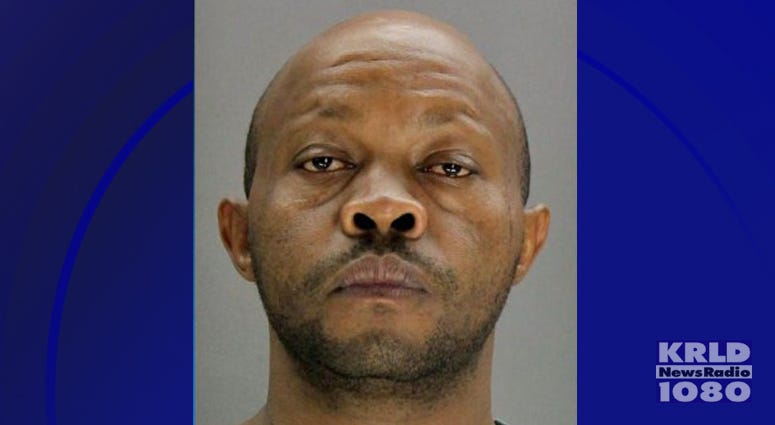
The jury that deadlocked in the first capital murder trial of accused serial killer Billy Chemirmir was much more skeptical of his guilt in the early stages of deliberation, according to one of the jurors.

The jury deliberated over two days last month before State District Court Judge Raquel 'Rocky' Jones declared a mistrial. Chemirmir, 48, faces a retrial for the March 20, 2018 smothering death of Lu Thi Harris, who was found dead in her far north Dallas home.
When deliberations began the jury was far from convinced. “We were focused on the closing arguments and the defense lawyer did a good job of creating some doubt,” said the juror, who spoke on the condition he not be identified. “We had a split of seven to five (to convict) when we went home the first night.”
The next day there was a shift, the juror said. “A second vote was taken and the dynamics had switched with 10 of the 12 jurors voting to convict. A half hour later, the juror said another juror changed her mind. The vote remained 11-1 until the mistrial was declared.
The state’s case was build, entirely, on circumstantial evidence, and did not directly tie Chemirmir to the scene. That was apparently the defining factor for the holdout.
“She felt the state did not prove their case,” the juror said.
Prosecutors spent more than 3 days weaving together evidence from two smothering-murders and one attempted smothering. That evidence included store surveillance videos that showed Chemirmir in the same Wal-Mart as two smothering victims. They produced receipts and testimony that showed Chemirmir in possession of Harris’s stolen jewelry, which was advertised on an app within 9 minutes of her death. They had cell phone records that put Chemirmir in the vicinity of the three victims.
But it’s what they did not have that left the juror unconvinced, other sources say.
There were no fingerprints, no DNA evidence, no ring camera video. There was nothing to prove to the juror that Chemirmir was at the scenes and committed the crime, according to the sources.
Dallas County District Attorney John Creuzot said the state will file to retry Chemirmir for Harris’s death. He faces a total of 18 capital murder cases in both Dallas and Collin Counties. Police and civil suits claim to tie the Kenyan national to another six.
Chemirmir was arrested after police began piecing together a series of deaths of elderly women. The day before Harris was found dead, Plano firefighters had revived Mary Bartel, 91 Plano, who was found unconscious in her assisted living room. They revived Mary Bartel who told them a man had come into her room, attempted to smother her with a pillow, stolen jewelry and fled. Police soon realized there had been other deaths in the same retirement community that had initially been considered natural causes.
Bartel, who has since died of natural causes, was able to give recorded testimony in which she talked about “the biggest mistake of her life,” allowing a man wearing green rubber gloves into her room after he relentlessly banged on her door. Bartel said she did not get a good look at Chemirmir’s face.
Investigators began asking questions and found a man who had talked to Chemirmir in the retirement home parking lot, and had written down the license plate number. That car belonged to Chemirmir.
Surveillance was set up outside of Chemirmir’s apartment and police were there when they say they saw Chemirmir throwing trash into the dumpster. One of the items was a jewelry box belonging to Harris. The officers went to Harris’s home and found her dead in her bed. Lipstick on her pillow suggested it had been used as a murder weapon. The Medical Examiner would later determine Harris had been smothered, most likely with a pillow that had lipstick smears.
Police began contacting other agencies and a web of information began pointing to death after death that had either been unexplained or presumed to be due to natural causes. In many of the cases, police say jewelry had been taken. Chemirmir was suddenly a chief suspect, with police saying he had posed as a maintenance worker or medical technician, taking advantage of lackluster oversight at several senior citizen communities.
Defense attorneys and the Dallas County District Attorney’s office are declining comment on the lone juror and her motivations for sticking with her decision not to convict.
LISTEN on the Audacy App
Sign Up and Follow NewsRadio 1080 KRLD

